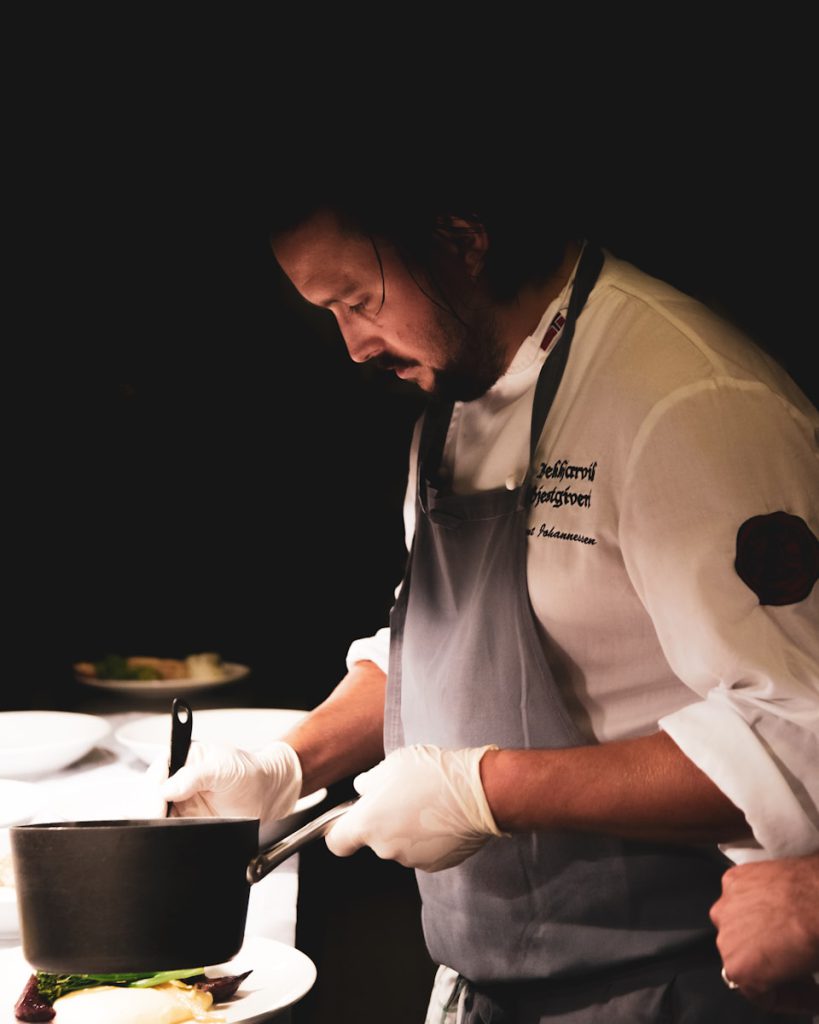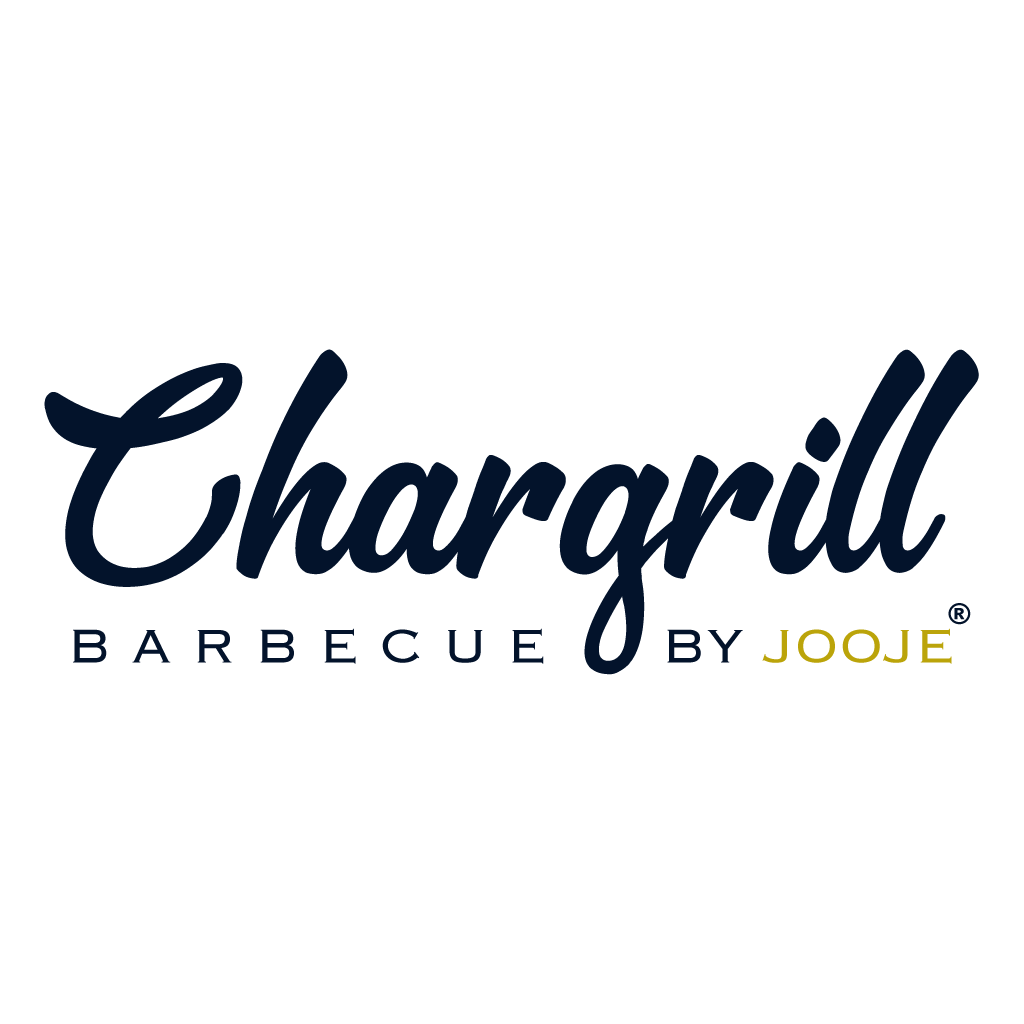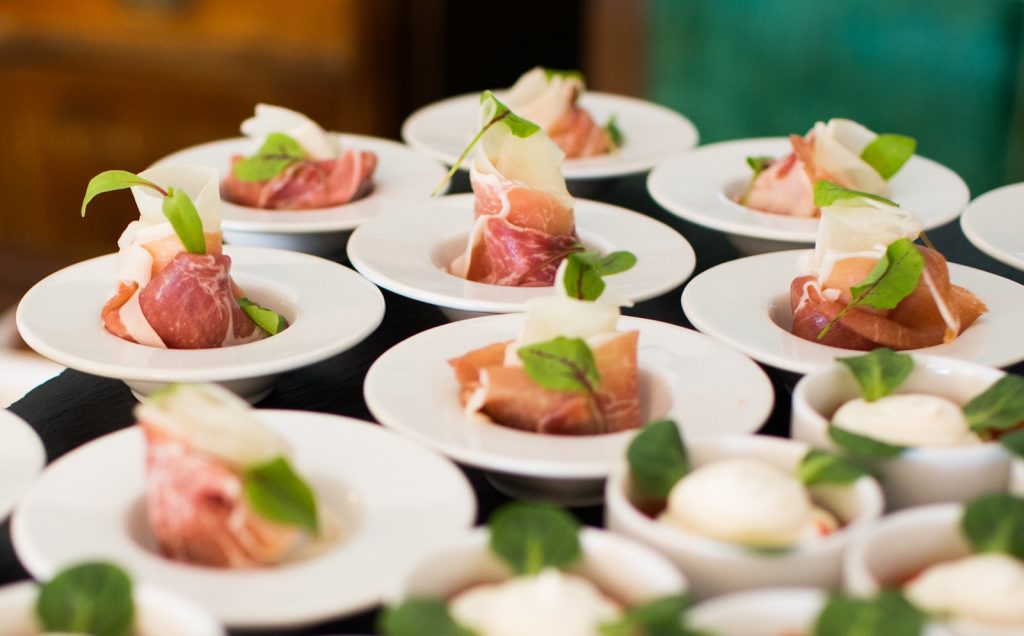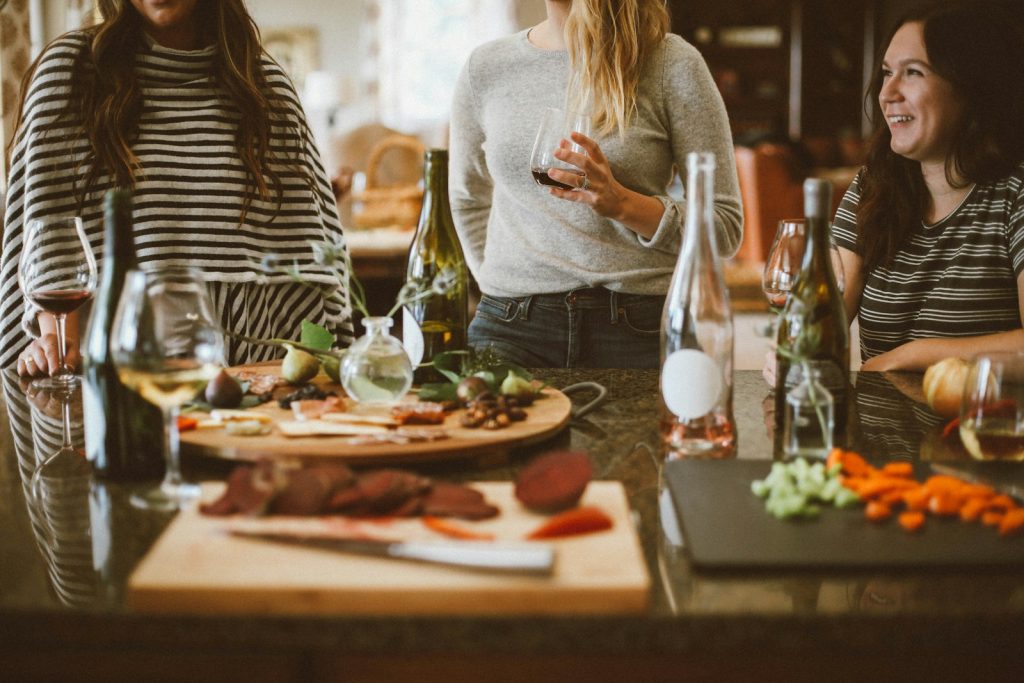Planning a party requires meticulous attention to detail, especially when it comes to Catering Supplies for Parties. To offer the best barbecue catering service means equipment is essential to ensure your event runs smoothly and impresses your guests. This comprehensive guide to the ultimate catering equipment checklist for a perfect party will help you prepare for any occasion, from intimate gatherings to large celebrations.
Food Preparation and Cooking Equipment
A successful catering operation starts with proper food preparation and cooking equipment. Ensuring you have all the necessary tools will streamline your cooking process and guarantee delicious results.
Essential Cooking Equipment
The cornerstone of any catering event is the food. Here’s a detailed list of the essential cooking equipment you need:
- Ovens and Stovetops: Convection ovens and gas stovetops are ideal for preparing a variety of dishes simultaneously.
- Grills: Perfect for outdoor events, providing a smoky flavor to meats and vegetables.
- Food Processors and Mixers: Speed up chopping, mixing, and blending tasks with high-quality food processors and mixers.
- Blenders: Essential for preparing soups, sauces, and smoothies.
| Equipment | Price Range | Description |
|---|---|---|
| Convection Oven | $1,500 – $5,000 | Even cooking, ideal for baking and roasting. |
| Gas Stovetop | $800 – $2,000 | High heat control, suitable for various cuisines. |
| Commercial Grill | $1,200 – $3,000 | Perfect for grilling meats and vegetables. |
| Food Processor | $200 – $800 | Efficiently chops, slices, and dices ingredients. |
| Commercial Blender | $150 – $600 | Blends sauces, soups, and drinks effortlessly. |

Food Preparation Tips
- Pre-chop vegetables: Save time on the event day by pre-chopping vegetables and storing them in airtight containers.
- Marinate meats in advance: Enhance flavors by marinating meats at least 24 hours before the event.
- Organize your kitchen: Ensure your kitchen is well-organized to facilitate smooth workflow during food preparation.
Planning and Coordination
Proper planning and coordination are crucial to the success of any catering event. This section provides tips and checklists to ensure every detail is covered, from menu planning to staff coordination.
Essential Planning and Coordination Steps
- Menu Planning: Finalize menu items with the client, considering dietary restrictions and preferences.
- Staff Coordination: Assign roles, confirm availability, and schedule training sessions if necessary.
- Logistics and Setup: Plan transportation routes, setup times, and layout designs.
| Task | Description |
|---|---|
| Menu Planning | Confirm menu items, consider dietary needs, and organize a tasting session. |
| Staff Coordination | Assign roles, confirm staff availability, and schedule training. |
| Logistics and Setup | Plan transportation, setup times, and venue layout. |
Tips for Effective Planning and Coordination
- Communicate clearly: Ensure all team members understand their roles and responsibilities.
- Stay organized: Use checklists to track tasks and ensure nothing is overlooked.
- Plan for contingencies: Have backup plans in place for potential issues, such as bad weather or equipment failure.
Food Storage and Transportation
Proper storage and transportation of food are crucial to maintaining quality and safety. Insulated carriers and coolers ensure that your food remains at the right temperature from your kitchen to the event venue.
Essential Storage and Transportation Equipment
- Insulated Food Pan Carriers: Keep food hot or cold for several hours.
- Coolers and Ice Packs: Essential for storing beverages and perishables.
- Utility Carts: Transport large quantities of food and equipment with ease.
| Equipment | Price Range | Description |
|---|---|---|
| Insulated Food Pan Carrier | $100 – $400 | Maintains temperature for hot or cold foods. |
| Large Cooler | $50 – $200 | Ideal for storing beverages and perishable items. |
| Ice Packs | $10 – $50 | Keeps coolers cold for extended periods. |
| Utility Cart | $100 – $300 | Easily transport food and equipment across the venue. |
Tips for Food Storage and Transportation
- Label containers: Clearly label all containers with the contents and expiration dates to avoid confusion.
- Use airtight containers: Prevent spillage and maintain freshness by using airtight containers.
- Plan the route: Ensure you have a clear route for transporting food to avoid delays and mishaps.
Insulated Food Pan Carriers
Insulated food pan carriers are crucial for maintaining the temperature of food during transportation from your kitchen to the event venue. These carriers use advanced insulation technology to keep hot foods hot and cold foods cold for extended periods. This ensures that the food remains safe and at the right serving temperature, which is vital for both food quality and safety.
Types and Features
- Electric Insulated Carriers: These come with built-in heating elements that can be plugged in to maintain temperature.
- Non-Electric Insulated Carriers: These rely solely on their insulation properties and are more portable but require pre-heated or pre-cooled food.
Benefits
- Temperature Control: Ensures food is served at the optimal temperature.
- Food Safety: Prevents bacterial growth by keeping food out of the danger zone (40°F – 140°F).
- Efficiency: Allows caterers to prepare food in advance and transport it safely.
Use Cases
- Weddings and Large Gatherings: Essential for transporting large quantities of food.
- Outdoor Events: Perfect for events without immediate access to kitchen facilities.
- Corporate Events: Useful for maintaining the quality of buffet-style meals.
Maintenance Tips
- Regular Cleaning: Clean carriers after each use to prevent odor and bacterial buildup.
- Inspect Seals: Ensure the door seals are intact to maintain insulation efficiency.
- Pre-Heat or Pre-Cool: Use hot water or ice packs to pre-condition the carrier before loading food.
Comparative Analysis
| Carrier Type | Price Range | Key Features |
|---|---|---|
| Electric Insulated | $300 – $700 | Built-in heating elements, ideal for long events |
| Non-Electric Insulated | $100 – $400 | Lightweight, portable, requires pre-heating/cooling |
Portable Grills and Cooktops
Portable grills and cooktops are essential for outdoor catering events where traditional kitchen facilities are unavailable. These Catering Supplies for Parties provide the flexibility to cook fresh meals on-site, enhancing the dining experience with freshly prepared dishes.
Types and Features
- Induction Cooktops: Portable and efficient, suitable for a variety of dishes including crepes, omelets, and stir-fry.
- Gas Grills: Ideal for grilling meats and vegetables, providing a smoky flavor that is hard to replicate indoors.
- Charcoal Grills: Offers a unique, rich flavor but requires more time and skill to manage.
Benefits
- Flexibility: Allows for on-site cooking, adapting to the needs of different events.
- Enhanced Flavor: Grills, especially charcoal, can impart a distinct taste to dishes.
- Compact and Portable: Easy to transport and set up at any location.
Use Cases
- Backyard Parties: Perfect for informal gatherings where grilling is part of the experience.
- Corporate Events: Suitable for creating live cooking stations that engage guests.
- Festivals and Fairs: Ideal for vendors needing to cook and serve food on the go.
Maintenance Tips
- Regular Cleaning: Clean the grills and cooktops after each use to maintain performance.
- Check Fuel Levels: Ensure there is enough gas or charcoal before the event.
- Inspect Components: Regularly check for any wear and tear, especially in gas lines and burners.
Comparative Analysis
| Equipment Type | Price Range | Key Features |
|---|---|---|
| Induction Cooktops | $100 – $300 | Energy-efficient, no ambient heat, compact |
| Gas Grills | $200 – $600 | Quick setup, consistent heat, versatile |
| Charcoal Grills | $50 – $200 | Rich flavor, traditional grilling experience |
Cleaning and Safety Protocols
Maintaining cleanliness and safety is paramount in any catering operation. Proper cleaning supplies and safety equipment ensure a hygienic environment and safeguard against accidents, contributing to the smooth running of your event.
Essential Cleaning Supplies
- Disposable Gloves: For safe food handling and preventing cross-contamination.
- Sanitizing Wipes: For quick cleaning of surfaces and hands.
- Cleaning Solutions: For deep cleaning of equipment and surfaces.
- Trash Bags: For efficient waste management during and after the event.
- Hand Sanitizers: To promote hygiene among guests and staff.
Essential Safety Equipment
- Fire Extinguishers: Crucial for handling emergencies involving fire.
- First Aid Kits: Essential for handling minor injuries that may occur.
- Safety Signs: To indicate hazards and ensure a safe environment.
Cleaning and Safety Protocols
- Sanitization: Regularly sanitize all food preparation and serving areas to prevent contamination.
- Waste Management: Set up clearly marked trash and recycling bins to manage waste efficiently.
- Fire Safety: Ensure fire extinguishers are accessible and that staff are trained to use them.
- First Aid Readiness: Keep first aid kits easily accessible and ensure staff are trained in basic first aid procedures.
- Personal Hygiene: Encourage frequent hand washing and use of hand sanitizers among staff.
Tips for Maintaining Cleanliness and Safety
- Regularly Sanitize Surfaces: Ensure all food preparation and serving areas are frequently sanitized.
- Proper Waste Disposal: Set up clearly marked trash and recycling bins to manage waste efficiently.
- Safety First: Keep fire extinguishers and first aid kits accessible and ensure staff are trained to use them.
Comparative Analysis
| Item | Price Range | Key Features |
|---|---|---|
| Disposable Gloves | $10 – $50 | For safe food handling and sanitation tasks |
| Trash Bags | $10 – $30 | Manage waste efficiently during the event |
| Fire Extinguisher | $30 – $100 | For safety in case of fire emergencies |
| First Aid Kit | $20 – $50 | Essential for handling minor injuries |
| Hand Sanitizers | $5 – $20 | Promote hygiene among guests and staff |
Serving Equipment for catering
Serving equipment plays a pivotal role in how food is presented and served to guests. Investing in the right serving tools ensures efficiency and enhances the overall dining experience.
Essential Serving Equipment
- Chafing Dishes and Chafer Fuel: Keep food warm and ready to serve.
- Serving Trays and Platters: Ideal for presenting appetizers and main dishes.
- Beverage Dispensers: Convenient for self-serve drink stations.
| Equipment | Price Range | Description |
|---|---|---|
| Chafing Dish | $50 – $150 | Keeps food warm using Sterno or chafer fuel. |
| Chafer Fuel | $10 – $30 | Fuel for chafing dishes to maintain heat. |
| Serving Tray | $20 – $100 | Durable trays for carrying multiple items. |
| Beverage Dispenser | $30 – $150 | Self-serve drink dispensers for easy access. |
Tips for Efficient Serving
- Organize serving stations: Set up serving stations in a logical order to avoid congestion.
- Use proper utensils: Ensure you have the right utensils for each type of dish to facilitate easy serving.
- Keep extras on hand: Have extra serving utensils and trays available in case of spills or shortages.
Table Settings
A well-set table enhances the dining experience and adds to the event’s ambiance. From elegant dinnerware to stylish glassware, the right table settings can make a significant difference.
Essential Table Settings
- Dinnerware: Plates, bowls, and serving dishes suitable for the event’s theme.
- Glassware: Wine glasses, tumblers, and other drinkware.
- Flatware: Knives, forks, and spoons for all courses.
| Equipment | Price Range | Description |
|---|---|---|
| Dinnerware Set | $50 – $300 | Complete set of plates, bowls, and serving dishes. |
| Glassware Set | $30 – $200 | Includes wine glasses, tumblers, and more. |
| Flatware Set | $30 – $150 | Knives, forks, and spoons in various styles. |
Tips for Table Settings
- Match the theme: Choose dinnerware and glassware that complement the event’s theme.
- Ensure cleanliness: Double-check that all tableware is clean and polished before setting the table.
- Plan the layout: Arrange tables and chairs to accommodate the number of guests comfortably.
Catering equipments for Beverage Service
Providing a variety of beverages is essential for any event. From coffee stations to cocktail bars, having the right equipment ensures guests are satisfied.
Essential Beverage Service Equipment
- Coffee Urns and Tea Dispensers: Serve hot beverages efficiently.
- Beverage Dispensers and Pitchers: Ideal for self-serve stations.
| Equipment | Price Range | Description |
|---|---|---|
| Coffee Urn | $50 – $200 | Large-capacity urns for serving hot coffee. |
| Tea Dispenser | $40 – $150 | Keeps tea hot and ready to serve. |
| Beverage Dispenser | $30 – $150 | Self-serve drink dispensers for cold beverages. |
| Pitchers | $20 – $80 | Used for serving water, juice, or cocktails. |
Tips for Beverage Service
- Stock up on supplies: Ensure you have enough cups, stirrers, and condiments for all guests.
- Keep drinks accessible: Place beverage stations in easily accessible areas.
- Monitor levels: Regularly check and refill beverage dispensers to avoid running out.
Decoration and Ambiance
Creating the right atmosphere is key to a memorable event. Decorations and ambiance elements set the tone and make guests feel welcome.
Essential Decoration Items
- Centerpieces and Vases: Add elegance to tables.
- Candles and Candle Holders: Create a warm, inviting atmosphere.
- Tablecloths and Napkins: Coordinate with the event’s theme.
| Item | Price Range | Description |
|---|---|---|
| Centerpieces | $20 – $100 | Decorative items for table centerpieces. |
| Vases | $10 – $50 | Hold flowers or other decorative elements. |
| Candles | $5 – $30 | Create a warm, inviting glow. |
| Candle Holders | $10 – $50 | Hold candles securely on tables. |
| Tablecloths | $10 – $50 | Cover tables and add color to the setup. |
| Napkins | $5 – $20 | Essential for guests’ convenience. |
Tips for Decoration and Ambiance
- Match the decor: Choose decorations that complement the event’s theme.
- Use lighting effectively: Incorporate candles or fairy lights for a cozy ambiance.
- Plan the layout: Arrange decorations thoughtfully to enhance the venue’s appearance.
Cleaning and Safety Supplies
Maintaining cleanliness and safety is paramount during any event. Proper cleaning supplies and safety equipment ensure a hygienic environment and safeguard against accidents, contributing to the smooth running of your event.
Essential Cleaning and Safety Supplies
- Disposable Gloves and Trash Bags: Essential for food handling and waste management.
- Sanitizing Wipes and Cleaning Solutions: Ensure surfaces and equipment remain clean and sanitized.
- Fire Extinguishers and First Aid Kits: Crucial for handling emergencies.
- Hand Sanitizers: Promote hygiene among guests and staff.
| Item | Price Range | Description |
|---|---|---|
| Disposable Gloves | $10 – $50 | For safe food handling and sanitation tasks. |
| Trash Bags | $10 – $30 | Manage waste efficiently during the event. |
| Sanitizing Wipes | $5 – $20 | Quick cleaning of surfaces and hands. |
| Cleaning Solutions | $10 – $40 | For deep cleaning of equipment and surfaces. |
| Fire Extinguisher | $30 – $100 | For safety in case of fire emergencies. |
| First Aid Kit | $20 – $50 | Essential for handling minor injuries. |
| Hand Sanitizers | $5 – $20 | Promote hygiene among guests and staff. |
Tips for Maintaining Cleanliness and Safety
- Regularly sanitize surfaces: Ensure all food preparation and serving areas are frequently sanitized.
- Proper waste disposal: Set up clearly marked trash and recycling bins to manage waste efficiently.
- Safety first: Keep fire extinguishers and first aid kits accessible and ensure staff are trained to use them.
Miscellaneous Items
In addition to the core equipment, several miscellaneous items are essential for a seamless catering experience. These items, though varied, contribute significantly to the efficiency and success of your event.
Essential Miscellaneous Items
- Utility Carts and Plate Racks: Facilitate the easy transport of food and equipment.
- Emergency Kits: Include extra supplies and tools for unforeseen situations.
- Menus and Place Cards: Enhance organization and guest experience.
| Item | Price Range | Description |
|---|---|---|
| Utility Carts | $100 – $300 | Transport food and equipment with ease. |
| Plate Racks | $50 – $200 | Organize and transport plates efficiently. |
| Emergency Kits | $20 – $50 | Extra supplies for emergencies. |
| Menus and Place Cards | $10 – $30 | Organize seating and inform guests about the menu. |
Tips for Miscellaneous Items
- Have a backup plan: Keep extra supplies on hand to handle unexpected situations.
- Organize effectively: Use place cards and menus to ensure guests know where to sit and what’s being served.
- Facilitate movement: Use utility carts to move food and equipment around the venue efficiently.
Having a comprehensive catering equipment checklist is essential for planning a successful party. By ensuring you have the right tools and supplies, you can provide an exceptional dining experience for your guests. From food preparation and transportation to serving and decoration, each element plays a crucial role in the overall success of the event. Use this guide to ensure your next catering event is well-organized, efficient, and memorable for all the right reasons.



